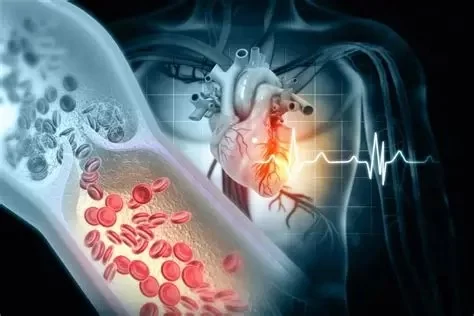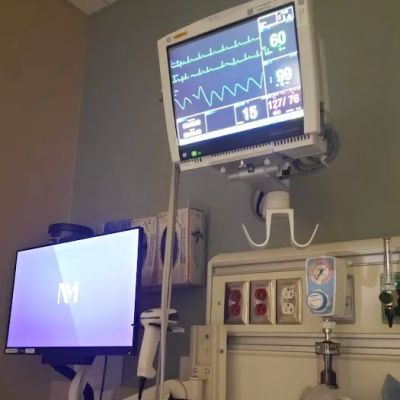- 1 - Understanding the Link Between Diabetes and Heart Disease
- 2 - Early Signs of Heart Disease in Diabetic Patients
- 3 - Why Diabetes Increases Heart Disease Risk
- 4 - How to Recognize Symptoms of Heart Disease in Diabetics
- 5 - Preventative Measures for Diabetic Heart Health
- 6 - Managing Heart Disease with Diabetes
- 7 - Real-Life Experiences and Stories of Diabetic Patients with Heart Disease
- 8 - When to Seek Professional Help for Heart Disease in Diabetics
- 9 - How HeartCare Hub Can Assist You
- 10 - Final Thoughts on Recognizing Heart Disease in Diabetics
1. Understanding the Link Between Diabetes and Heart Disease
Diabetes and heart disease are closely connected, and individuals with diabetes are at a significantly higher risk of developing cardiovascular problems. Over time, high blood sugar levels can damage blood vessels and nerves, making it harder for the heart to function properly. Diabetic patients, especially those with poorly controlled blood sugar levels, face an increased risk of heart attack, stroke, and other heart-related complications. Understanding this connection is essential for managing both conditions effectively.

2. Early Signs of Heart Disease in Diabetic Patients
Recognizing early signs of heart disease in diabetic patients can be challenging, as some symptoms may overlap with other diabetic complications. However, there are several key early warning signs to watch for:
1. Chest pain or discomfort: This may feel like pressure, tightness, or pain in the chest, and could indicate heart-related issues. It’s important to get this checked immediately if you experience these symptoms.
2. Shortness of breath: Difficulty breathing, especially during physical activity or while at rest, may signal heart problems.
3. Fatigue and weakness: Unexplained fatigue, especially when accompanied by other symptoms like dizziness, can be a sign of heart disease.
4. Swelling in the legs or ankles: Fluid retention due to poor circulation can cause swelling, which is often linked to heart disease in diabetics.
Atlanta Heart Specialists
atlanta heart specialists
4375 Johns Creek Pkwy #350, Suwanee, GA 30024, USA

3. Why Diabetes Increases Heart Disease Risk
Diabetes can lead to several factors that increase the risk of heart disease. High blood sugar levels can cause damage to blood vessels, leading to atherosclerosis (narrowing of the arteries) and poor circulation. Additionally, diabetes often leads to high blood pressure, high cholesterol, and inflammation, all of which are major risk factors for cardiovascular disease. The combination of these factors makes it crucial for diabetic patients to monitor their heart health closely and take steps to prevent heart disease.
4. How to Recognize Symptoms of Heart Disease in Diabetics
In addition to the early signs of heart disease mentioned earlier, diabetic patients should also be aware of other potential symptoms. These can include:
1. Rapid or irregular heartbeat: If you notice your heart racing or irregular beats, this could be a sign of a heart problem.
2. Lightheadedness or dizziness: Dizziness or feeling faint, especially when standing up, may indicate poor blood flow to the heart or brain.
3. Nausea and cold sweats: These symptoms, often associated with heart attacks, may also occur in diabetic patients with heart disease.
It’s important to pay attention to these symptoms and seek medical attention if they occur frequently or worsen over time.
5. Preventative Measures for Diabetic Heart Health
Taking proactive steps to manage diabetes and prevent heart disease is crucial for long-term health. Here are some preventative measures diabetic patients can take to protect their heart health:
1. Control blood sugar levels: Keeping blood sugar levels within a healthy range is the most important factor in preventing heart disease for diabetics. Work with your healthcare provider to create an effective diabetes management plan.
2. Maintain a healthy weight: Maintaining a healthy weight through balanced nutrition and regular physical activity can help reduce the strain on your heart and lower the risk of cardiovascular problems.
3. Exercise regularly: Regular physical activity, such as walking, swimming, or cycling, helps improve circulation, lower blood pressure, and regulate cholesterol levels.
4. Monitor blood pressure and cholesterol: Regularly check your blood pressure and cholesterol levels, as high readings can contribute to heart disease. Medications or lifestyle changes may be needed to control these factors.
6. Managing Heart Disease with Diabetes
If you’ve already been diagnosed with both diabetes and heart disease, it’s important to work closely with your healthcare provider to develop a comprehensive treatment plan. This may include:
1. Medications: Medications to manage blood pressure, cholesterol, and blood sugar may be necessary to keep both conditions under control.
2. Lifestyle changes: Making changes to your diet, exercise routine, and stress management practices can help improve heart health and keep diabetes in check.
3. Regular check-ups: Regular visits to your healthcare provider are essential for monitoring both your heart and diabetes. Routine tests, such as ECGs, blood tests, and kidney function assessments, help catch potential issues early.
7. Real-Life Experiences and Stories of Diabetic Patients with Heart Disease
One diabetic patient shared their experience of living with both diabetes and heart disease. After noticing fatigue and shortness of breath, they sought medical advice and learned that their uncontrolled blood sugar had contributed to early stages of heart disease. By following a strict diabetes management plan, including medication and lifestyle changes, they were able to prevent further complications and improve their quality of life.
Another patient who had suffered from heart disease due to diabetes shared that consistent monitoring of their blood pressure and cholesterol levels, along with regular exercise, had helped them avoid more severe heart issues. Their story highlights the importance of early detection and proactive management.
8. When to Seek Professional Help for Heart Disease in Diabetics
If you experience any of the symptoms mentioned earlier or notice changes in your health, it’s important to seek professional help right away. Early detection and treatment are crucial in preventing severe complications. Regular check-ups with your doctor or cardiologist can help identify any signs of heart disease before they become more serious.
9. How HeartCare Hub Can Assist You
At HeartCare Hub, we offer resources and expert advice to help diabetic patients manage their heart health. Our platform connects you with professionals who can guide you in creating a heart-healthy plan tailored to your specific needs. Whether you need advice on lifestyle changes, treatment options, or managing multiple health conditions, HeartCare Hub is here to help.
10. Final Thoughts on Recognizing Heart Disease in Diabetics
Recognizing the early signs of heart disease in diabetic patients is essential for preventing long-term health complications. By staying vigilant, managing blood sugar levels, and adopting a healthy lifestyle, you can significantly reduce the risk of heart disease. If you’re a diabetic patient, it’s never too early to start taking steps to protect your heart.
For more information and personalized guidance, visit HeartCare Hub today and take control of your heart health.






















Deborah Heart and Lung Center
deborah heart and lung center
200 Trenton Rd, Browns Mills, NJ 08015, USA